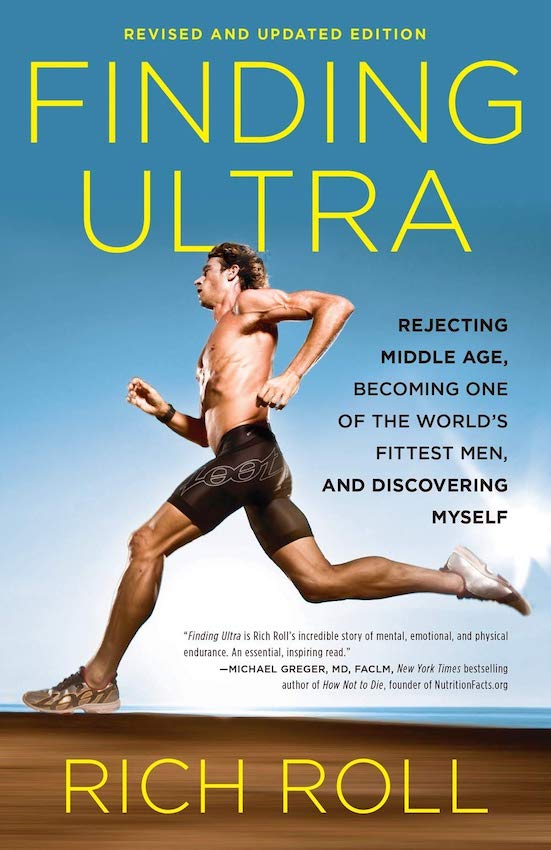Rich Roll diet - plant-based strategies for high performance

He's in seriously good shape and, as a high-level athlete who's also completely plant-based, knows more all about powerful wholefood nutrition for equally powerful performance. His name's Rich Roll - let's take a peak under the hood of the Rich Roll diet. What does he eat and how does he approach the twin peaks of food and nutrition?
Once a top gun US college swimmer who stood on the brink of Olympic glory, Roll rapidly sunk into a high-pressure job, middle aged spread and a massive alcohol problem. Aged 39, bloated and out of breath climbing the stairs he took stock of the mess he was in and decided it was time for a change.
A massive change.
Rich Roll diet: the big switch
Turning to an entirely plant-based diet, he hit the training h-a-r-d and dived deep into long-distance triathlon bagging a knockout 11th place finish at Ultraman (6.2 mile swim, 261 mile bike ride and a double marathon), and then going on to rack out five Ironman triathlons, back-to-back, in five days. He hasn't stopped since and is now happily one of the fittest early-fifties blokes on the planet.
Rich Roll diet: what you don't eat matters as much as what you do
Roll knows performance and he knows nutrition. One of his great educational points is regarding traditional sports nutrition.
In short, he has standard processed carbs (maltodextrin and co) and whey protein high on his list of 'Things to avoid' and explains why in his excellent book, 'Finding Ultra':
"I generally refrain from eating any of the artificially colored sugary products popular among most endurance athletes - like those gooey gels and Gatorade-type drinks... most of which contain a ton of artificial additives as well as whey protein, a dairy extract from cheese production.
"Chemical additives aside, the high glycemic "simple sugar" content of these products causes a rapid spike in blood sugar. To the extent that a short workout or race induces low blood sugar, this spike can be a good thing, giving your body access to a quick-burning fuel source.
"But be advised: once you've boosted your blood sugar in this manner, you must then continuously put into the bloodstream high-glycemic content foods for the duration of your training session. Fail to do so and the comcomitant spike in insulin levels - the body's natural response to a sudden increase in blood sugar - will rapidly pull these sugars out of the blood, causing you to "crash"...
"Because the duration of my training sessions often exceeds several hours, I prefer to get my energy from a lower glycemic source, which is more effective in maintaining an even and stable level of blood sugar over extended periods of time."
Best Sellers
Wise words indeed, and further evidence that for serious endurance nutrition high GI carb-based products should be occasional supplements and not the core of your nutrition as their manufacturers and marketing folks love to tell us.
Rich Roll, we salute you. You can check the man himself out here for his excellent site and podcast.
Get mighty plant-based power for your next workout or race
Our unique 4-ingredient Chia Energy Gels are powerful, natural and delicious. They're the ultimate stable energy hit and don't mess with your stomach. Ever. They are, in short, the business for anyone serious about going stronger and happier, for longer
From the 33 Vlog: can a plant-based diet make you faster?
From the 33 Podcast: Zach Bitter - lessons from America's fastest 100-mile runner
More from the blog
Plant-based diet for athletes: what it is, how it could help your pace and strength
Dairy and sports performance - good or bad?
What!? You don't eat meat or fish? But where do you get your protein bro??
Whey protein and endurance athletes
Maltodextrin - what is it and can it help performance?












